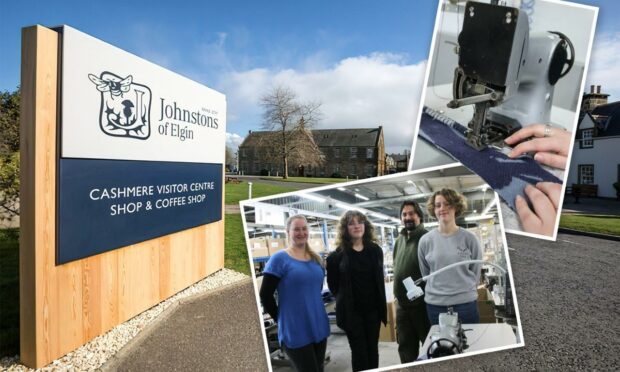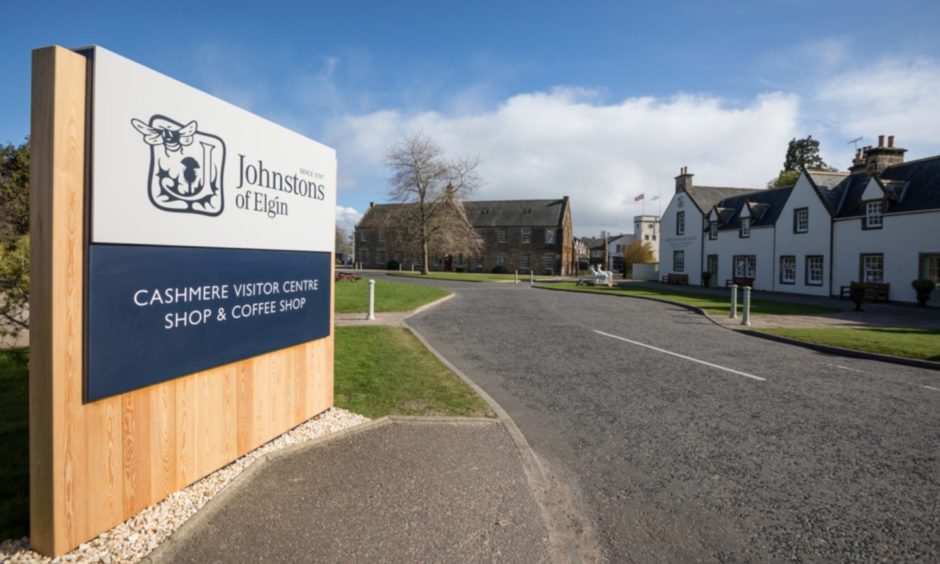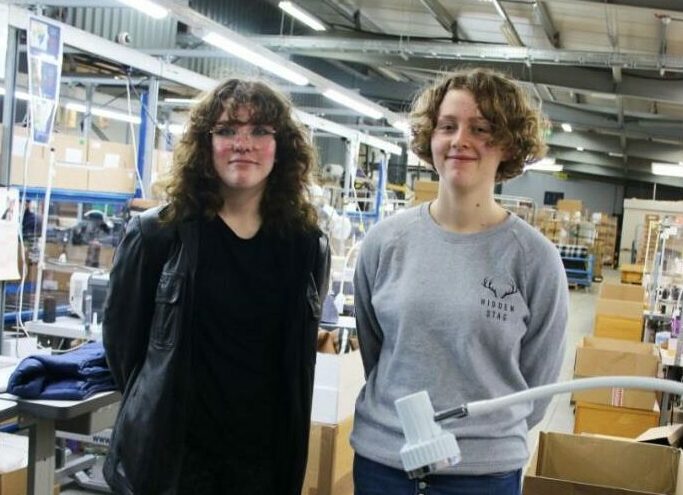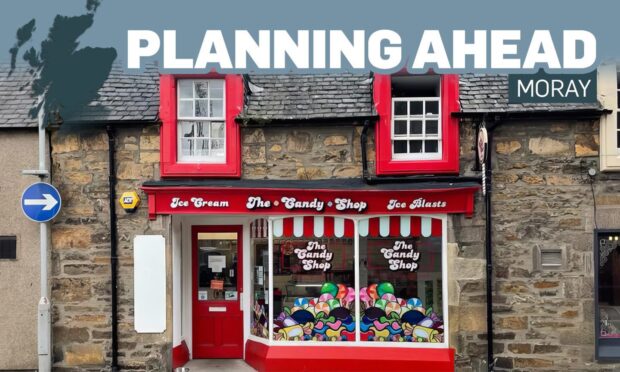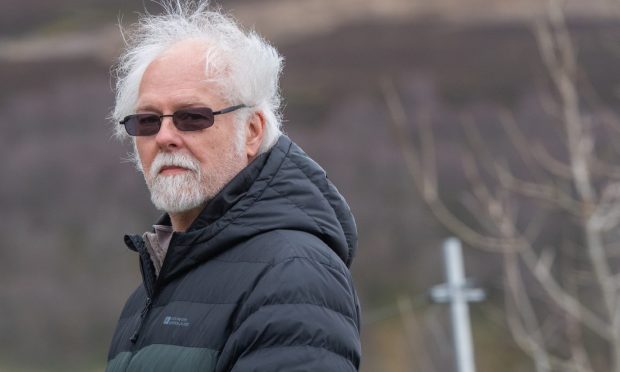For industries these days, it is vital to embrace technology to solve problems or face falling behind competitors.
For Moray textile manufacturers Johnstons of Elgin, 3D printing could hold the key to addressing challenges faced in maintaining their traditional Singer sewing machines.
The rare machines – which have been out of production for many years – help to produce the traditional blanket stitch that is still used today on Johnston’s merino and cashmere throws.
Johnstons’ currently has 10 machines which are in constant use.
They are sometimes in operation for up to 20 hours a day.
However, with the age of the machines and a halt in production, spare parts are becoming scarce.
Youngsters handed task of preserving manufacturing heritage
Now Elgin Academy pupils Lexi Sayle and Carrie Brown are driving forward efforts to best use technology to preserve the machines.
The duo have been tasked with stripping back and rebuilding the machines to suggest engineering methods that could prolong the machine’s life expectancy,
The 17-year-old’s aim to create a library of 3D printable spare parts, as well as an assembly guide for the old Singer machines.
Their efforts form part of a year-long project through Moray College UHI and Johnstons towards their qualification.
Project provides learning and practical experience
For the students, their venture into mechanical and electronic engineering has presented a “fun and challenging experience.”
Carrie said: “Taking the machines apart and constructing components made with 3D printing technology takes a lot of measuring and dedication but it’s really interesting.
“There is more work than at school but it’s different and there are no uniforms. That gives a sense of freedom and I feel more comfortable.
“I have learned lots of new things, not least the time and effort it takes to do a project.
“I’ve certainly composed far more emails than I thought!”
Lexi praised the support from the college through the apprenticeship.
She said: “It’s been a challenging and fun experience and I’ve learned a lot.
“One of these has been how to do a project presentation. It wasn’t something I was very good at before but now, with some coaching, I feel more comfortable with presentations.
“It’s also been really well supported by the college.
“I’m dyslexic so even little things like them printing work materials off on purple paper has really helped me.”
Hopes project can spark surge in youngsters applying to work at Johnstons
Johnstons bosses are hoping the project could attract more youth to join the company.
Emma Hay, learning and development manager for Johnstons of Elgin, said: “Carrie and Lexi’s wholehearted engagement with this project has proven the value of partnerships between education and industry.
“We would love for interactions – such as the Singer sewing machine project – to lead to young people applying for and accepting careers with Johnstons of Elgin, having found out about the exciting variety of opportunities available on their doorstep”.
Early exposure to work gives youngsters a head start in their careers
Paul Harlow, engineering lecturer at Moray College UHI, said: “Foundation apprenticeships are a work-based learning opportunity for senior-phase secondary school pupils.
“By giving young people earlier exposure to the world of work, we’re helping them develop the skills, experience and knowledge they’ll need when they leave school.
“The project will deliver a library of component parts to the engineers at Johnstons, which they can then get commercially printed when they need them, with a secondary goal of producing a complete three-dimensional model of the blanket-stitch machine.
“For them, it’s the chance to get a head start on their careers by gaining an industry-recognised qualification, work on real projects that give them real commercial experience and broaden their career options when they leave school.”
